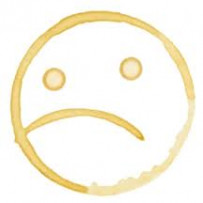
ACUPUNCTURE IS REPORTED TO BE A SAFE DRUG FREE TREATMENT FOR DEPRESSION DURING PREGNANCY.
Is acupuncture part of the solution in the quest to treat depression in pregnancy without chemical intervention and afterwards?
Regarding depression in pregnancy it is currently estimated that one in five pregnant women suffers moderate to severe depression, which needs some type of medical intervention. Add to that, women with a history of depression and who for preconception purposes came off their meds, tend to have a five-fold increased chance of suffering a relapse (while remaining off their medication during pregnancy). Plus women who are depressed during pregnancy have a greater risk of depression after giving birth.
What is their alternative as doctors are reluctant to prescribe, due to the lack of double bind studies on pregnant women, and women are naturally fearful of taking drugs during pregnancy due to the lack of safe data available on the effects of the drugs on their babies development inutero and after. This fear is exacerbated with US scientists alleging that placing pregnant women on anti depressants (especially SSRI’s) represents ‘a large scale human experiment’ on unborn babies and their mothers. Recent research suggests that drugs commonly prescribed for depression, like Prozac and Seroxat, will increase the risk of miscarriage in the first trimester to 12%; increase the chances of pre-term births and result in infant behavioural problems. There is a clear need for a safer solution for the health and well being of both mother and baby.
Acupuncture is certainly a drug free solution. Furthermore, to date, there have been positive results in treating pregnant women for depression. A study released in the Journal of Obstetrics and Gynaecology (2010), led by Rachel Manber, PhD, Professor of psychiatry and behavioral sciences, concludes that acupuncture is a viable treatment that should be considered. The study involved 150 women between 12 and 30 weeks gestation. All of these women met the criteria for a diagnosis of Major Depressive Disorder. The women were split into three groups, the first receiving acupuncture specific for depression; the second receiving control acupuncture (using points that were known not to alleviate depression) and the third receiving massage therapy.
Each woman received treatment for 8 weeks with assessments taken at week four and week eight by an independent assessor (on who was not aware of what treatment they were receiving). The results proved that 63% of the first group of women (who had the depression specific acupuncture) had notably reduced depression markers compared with 41% of the other two groups respectably. Clearly, they benefited from the depression-specific acupuncture they had received.
